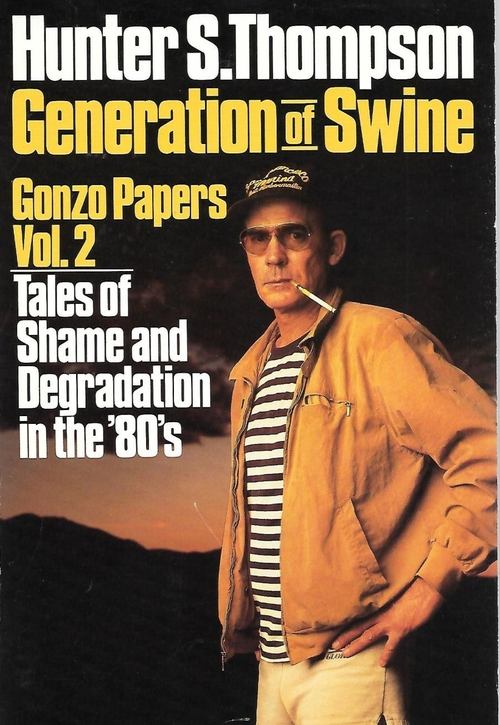MOVIE REVIEWS
 Review by John Chard
Review by John Chard
Erotico Psycho Dressed to Kill is directed and written by Brian De Palma. It stars Michael Caine, Angie Dickinson, Nancy Allen, Keith Gordon and Dennis Franz. Music is by Pino Donaggio and cinematography by Ralf D. Bode. Brian De Palma continues his commitment to Hitchcock thrillers with this erotic and lurid slice of entertainment pie. Plot in short order finds a razor wielding blonde woman on the loose in the city. A high class prostitute, a psychiatrist and the son of a victim try to solve the mystery before they themselves fall to the blonde killer. De Palma throws it all at the audience here, merrily pushing people's buttons as he goes. He uses all the tools and tricks of his trade for maximum impact, blending a number of genre staples and churning out a hyper stylised neo-noir that gleefully toys with audience expectations. Oh the plot is bonkers, deliriously so, but De Palma is a crafty pro who deftly marries up the excesses of the plot with virtuoso camera work, and not content with that he then brings Donaggio's musical score into play to ensure the viewer's senses are tingling. Unsurprisingly for the director, Dressed to Kill is sexually charged and violent, from the steamy beginning that ruffled feathers in a number of quarters, to the outrageous coda at the end where De Palma homage's himself, it's a film revelling in its schlocky being. However, it still has time for dramatic suspense and dangerously sensual mysticism, reference an extended section of film that sees Allen's hooker pursued relentlessly through the perils of the subway system, and a sequence played out at an art gallery without dialogue as we become Dickinson's disoriented eyes. Then there is the key murder scene, a dizzying array of slashes and cartoonish blood, it's purposely excessive and followed by screw tightening suspense that sets up the rest of the movie. De Palma and his on form principal cast members are having fun, how could they not with such trashy material to work from? Is Dressed to Kill phobic and misogynistic? Well plenty of people think so, in fact there was quite a fall out when the film was first released, when De Palma was subjected to the ire of a few minority groups. Judge for yourself is the only way to go really, but personally in amongst the schlock I feel there's comment on the dangers of fantasising beyond your realm, or of unfaithfulness, maybe even that America is itself irresponsible for its treatment of women on film? Of course it could just be De Palma at his most playful? Sitting there giggling to himself as others lose their cool… 8/10
Following a housewife’s brutal murder, the only witness to the incident teams up with the woman’s son to try to find the culprit which leads them to the patient of a psychiatrist who treated her and tries to stop the killer from striking them in order to cover the crime. This one turned out to be quite the rather enjoyable effort. A lot of the film’s great parts come from the manner in which this one deals with the expectations featured here of the film by following so close to its influences. As it follows so close to the main format here, as the general structure employed here comes directly with the structure of having the first half focus solely on the victim to get killed off and then morph over into the investigation into the incidents, that makes for a great deal of fun here as it deals with the few changes to be had with the storyline. That familiarity lends itself a great deal to the overall manner in which this one moves along as that keeps this one a lot more entertaining than it really should be without a whole lot of slashing action throughout here. With a big emphasis on the murder investigation and her involvement in the procedure, there’s a nice emphasis here to follow up the later adverts of that ones’ followers in a distinctly European manner by introducing not only the main investigation from the police but also going rather nicely into the amateur investigation by way of a piece of evidence only briefly glimpsed during the incident that becomes a central part of the investigation. These elements all give it a rather distinct and pronounced atmosphere to these brands of films which really lets it dwell in that type of sleaze far more comfortably than would be expected, not only from the type of nudity but also the rather stark sex scenes and frequently intoned psychosexual themes from the killer’s motivation which is straight out of that particular school of thriller which makes this one connect quite well there. Even with some incredibly well-done stalker scenes, including the opening attack in the elevator, the subway sequence or the finale at the office which give this some rather suspenseful stalking as well to balance it all with plenty to like. These don’t help the fact that there’s just not a whole lot of slasher action here, as the more thriller aspects here dominate this one so it doesn’t have a lot of stalking scenes and the body count itself is so low as to not really offer much in the way of bloodshed or gore. Those looking for a straight-up slasher won’t be interested in this one at all. Rated R: Extreme Graphic Language, Full Nudity, Graphic Violence and several intense sex scenes.
 Review by GenerationofSwine
Review by GenerationofSwine
It is an enjoyable film...but one with several natural endings. And that kind of makes for a fail. You're ready for the movie to be over after it concludes and then you wait until it concludes again, and then you wait until is actually concludes. However, it is tense, which is a De Palma hallmark, he knows how to make for a tense thriller, and that is where the appeal is, that is what really sets Dressed to Kill above a lot of other films. It plays on the nerves.
 Review by Wuchak
Review by Wuchak
**_Sordid Hitchcockian crime thriller set in the heart of the Big Apple_** A sexually frustrated housewife in Manhattan (Angie Dickinson) does something foolish, which leads to a crime witnessed by an upscale prostitute (Nancy Allen). A therapist (Michael Caine), a detective (Dennis Franz) and a whiz kid (Keith Gordon) help try to solve the case. Helmed by Brian De Palma, "Dressed to Kill" (1980) is a psychological drama/thriller in the tradition of Hitchcock. You’ll see bits borrowed from “Rear Window,” “North by Northwest,” “Psycho” and De Palma’s own “Carrie.” Some of the subway sequences are reminiscent of “The Warriors” from the year prior. Speaking of which, there’s a cartoonish, over-the-top quality to the proceedings that smacks of “A Touch of Evil.” The theme revolves around sexual lust, such as the carnal need of some women to feel desired, as well as male arousal. If that turns you off, I suggest staying away. This was made before the ADHD era and so the film takes its time in telling its story. For instance, the creative art museum sequence in the first act lasts 9 minutes and features zero dialogue, which arguably could have been done in less than half the time. While I didn’t personally mind it, most modern viewers will find it tedious and unnecessary. The same could be said of the curiously elongated ending which, again, I didn’t mind. Nancy Allen was De Palma’s new wife during shooting in 1979, a marriage that would only last until 1983. He tastefully illustrates her beauty despite her character being a hooker, although some have criticized her scenes in black lingerie as “softcore porn.” She appears in the other De Palma films “Carrie,” “Home Movies” and “Blow Out.” It’s best to go into this without knowing much else. The ending features a surprising twist that wouldn’t be done today for reasons of “political correctness” (rolling my eyes). The movie runs 1 hour, 44 minutes, and was shot in Manhattan with the art museum sequence done in Philadelphia. GRADE: B